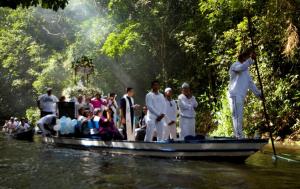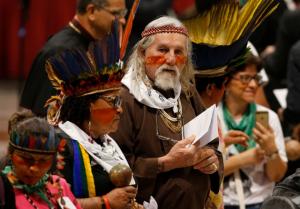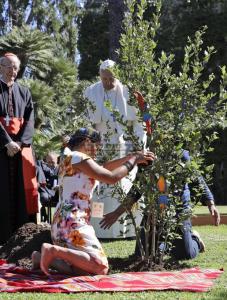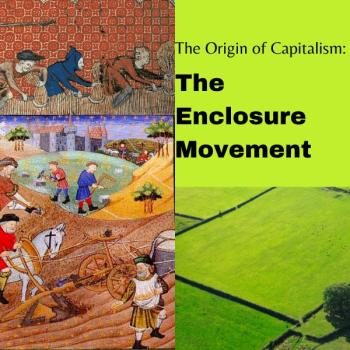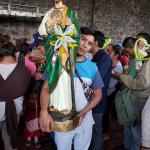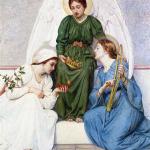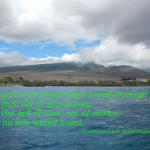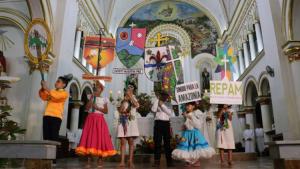
For any group that wishes to stand apart from the rest, identity is a major issue. The Church’s identity crisis of the last few decades is coming to a head with recent developments. These include Pope Francis’ emphasis on compassion and his push to the margins and the push against Francis by some, of whom Cardinal Burke is a leading example. The latest scene in the identity wars is the Amazon Synod.
The Bible records a similar identity crisis in the interplay of four interesting books: Ezra, Nehemiah, Jonah, and Ruth. I devoted earlier posts to Ezra and Nehemiah (here), Ruth (here), and Jonah (here).
Jews return from exile, pursue former identity
In 535 BCE God’s people returned to Jerusalem from the Babylonian Exile. It may have been around this time that people began calling them Jews. The experience of exile, without temple or land of their own, had brought to the fore the question of their identity. That issue only intensified through the often contentious relationship with the “People of the Land,” whom the returning Jews found occupying Judea. Ethnically, they were closely related to the former exiles, in part descendants of Israelites who were not deported. Theologically, they were not acquainted with religious developments that exile, with the help of some prophets, encouraged in the Jews.
When the priest Ezra, well-schooled in the Law, joined Nehemiah in leading the returning group, the identity issue came to a head. There was a day-long public reading of the Law, at which people expressed dismay at their many “sins.” Shortly after that, Ezra ordered all the men who had taken wives from the People of the Land to send them away. It seems a violation of these women and any children that may have resulted from those unions. But for Ezra a greater concern was keeping Jewish identity free from contamination.
Identity politics gets pushback
The Bible’s books of Ezra and Nehemiah tell that story, and you can’t second-guess God’s word, right? Actually, Second-guessing begins in the Bible itself.
The Encyclopedia Judaica says the Book of Ruth is a “subtle but forceful protest against the Ezra-Nehemiah attitude toward foreign women.” Scholarly opinion is mixed on the date of the book’s composition. It may have been much earlier than Ezra and Nehemiah’s time. Still, the story places a foreign woman (Ruth is Moabite) in a very positive light. She becomes an ancestor of David, Israel’s most loved king.
The story of Jonah most likely does come from the period after the Exile. The book’s tall-tale style humor perhaps gives its author plausible deniability in case the Ezra-Nehemiah faction objects to its message. But that message, on how to think about non-Jews, is pretty clear. God overrules his own prophet by showing mercy to a hated foreign people. My Catholic Bible, Personal Study Edition, likens this message to that of the later Book of Wisdom:
For you love all things that are and loathe nothing that you have made, for what you hated, you would not have fashioned. (Wisdom 11:24)
Pope Francis and the Amazon Synod
The peoples of the Amazon and the Amazon itself are, of course, some of those things that God made and loves. In the Amazon Synod God is trying to give us Jonah’s a new heart. Though we may not have felt hatred in our hearts for Amazonia and its people, our actions have been no less destructive than hate. Reversing this colonial approach to the Amazon is one of the Synod’s objectives.
The Synod wants to do more than reverse the past. Now the Church looks to the real riches of indigenous Amazon cultures. She hopes that in the Church’s continuing mission, especially in the Amazon, there can be a sharing of spiritual wealth in both directions. This does not mean loss of the Church’s identity, as some claim. The Church’s identity is as broad and inclusive as God’s love.
A rainforest is a good image of the Church’s identity. A mound of identical grains of sand has an identity, but a puff of wind can scatter its grains. The Church’s identity is more organic than that. A rainforest is a union of thousands of species interacting in countless ways. What happens to one affects all the others, just like with the members of the Body of Christ. Such a unity depends on differences among the species of a forest or the members of a body.
May the Church move along new paths with the peoples and cultures and the natural beauty of the Amazon.
dImage credit: CAFOD via Google Images







